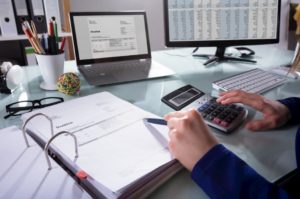Financial and Tax Organization Tips from a Public Accountant
 It is vital to keep one’s finances in order, whether one is an entity or a company. Many people wait until tax season to plan their finances. They sometimes find themselves with a mountain of data to sort through and no idea where to begin. A public accountant provides some guidance on how to properly manage your assets and taxes. Our website provides info about Norfolk Certified Public Accountant.
It is vital to keep one’s finances in order, whether one is an entity or a company. Many people wait until tax season to plan their finances. They sometimes find themselves with a mountain of data to sort through and no idea where to begin. A public accountant provides some guidance on how to properly manage your assets and taxes. Our website provides info about Norfolk Certified Public Accountant.
Accounts in a Bank
Bank accounts are important resources for money management. Singles should have a personal spending account as well as a savings account. Families should create a family account into which wage earners can deposit funds for household expenses. They can also have discretionary spending accounts as well as a family savings account. The expenses of a self-employed individual or a small business owner must be kept apart. This will avoid personal and professional matters from colliding. A public accountant may assist you in devising a strategy for contributing to each account.
Should I keep it or throw it away?
Many financial documents may be discarded after a period of time. Any documents relating to large transactions (a car, refrigerator, investment, etc.) should be held indefinitely, or at the very least until the item is no longer in use or needed. Everything relating to taxation, personal or investment profits, or both, should be held for at least three years, while six is recommended in the case of an audit. When taxes have been filed with a public accountant, credit card and bank statements, receipts, and utility and other bills should be thrown away annually. Scan and save these papers to simplify your life and save paper.
Paper Organization A simple, low-tech paper filing system can be used by a person. Create files for loans (mortgages, cars, etc. ), bank and credit card statements, insurance, household expenses (groceries, gas, clothes, etc. ), and bills. Certain tax deductions, such as tuition, health care expenses, travel, charitable contributions, savings, and so on, require their own files, according to public accountants. When you clean your purse or briefcase, hold a box in a visible position where you can store all receipts and bills. When balancing bank statements, reconcile the contents of the box on a weekly basis.
Organization of Computers
Self-employed individuals and small companies should use a computerised system to keep track of their finances. This reduces the number of late payments and reduces the amount of paperwork. Important documents can be scanned into a device and saved to a disc for the public accountant to use when it comes time to file your taxes. Dates including quarterly tax payments and payroll can be arranged in advance. When a company’s bank account is connected to the app, payments can be deducted automatically. All of these steps are designed to make things easier and more effective.
It’s tax season.
Individuals can pay their taxes once a year, on or before April 15, if they do so before the deadline. Businesses should contribute to a tax account on a quarterly or bi-annual basis. This prevents the debt from spiralling out of control. When taxes are charged, a bill for employment or a service is made, or a life insurance or other investment dividends report is received, the paperwork should be immediately filed in the public accountant’s tax file. They should gather all of your details well ahead of tax season in order to maximise your deductions.
Failure to maintain accurate records can lead to missed deadlines and payments. A certified public accountant will advise you on how to improve your financial and tax management. All should evaluate their own practises on a regular basis to see if they can be improved.


